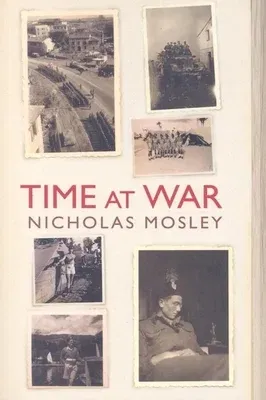Aged twenty, and with no war experience, Nicholas Mosley found himself
in charge of a platoon of men positioned along the Italian front during
the Second World War. With his father in prison on charges of treason,
he had enlisted primarily in an effort to improve his family image. But
the war left Mosley a radically changed man: he had gone in out of
personal convenience, and left with a sense of greater purpose. Saved
from death by one of his men, holed up in barns and trenches and tents,
and marching across Europe, Mosley found in war a certainty that eluded
him in peacetime. "War is both senseless and necessary, squalid and
fulfilling, terrifying and sometimes jolly," he writes. "This is like
life. Humans are at home in war (though they seldom admit this). They
feel they know what they have to do." In an interview conducted between
1977 and 1978, Nicholas Mosley said, "When I was young William Faulkner
was my great love, not just because of the density of style, but because
he seemed to be dealing with the question not of what will happen next
but what is happening now. The first Faulkner novel I read was The Sound
and the Fury, which I got hold of when we liberated a POW camp in Italy
in 1944 and I liberated the Red Cross Library. I was about twenty....
What in god's name, after all, was I doing aged twenty in Italy in a
war?"

